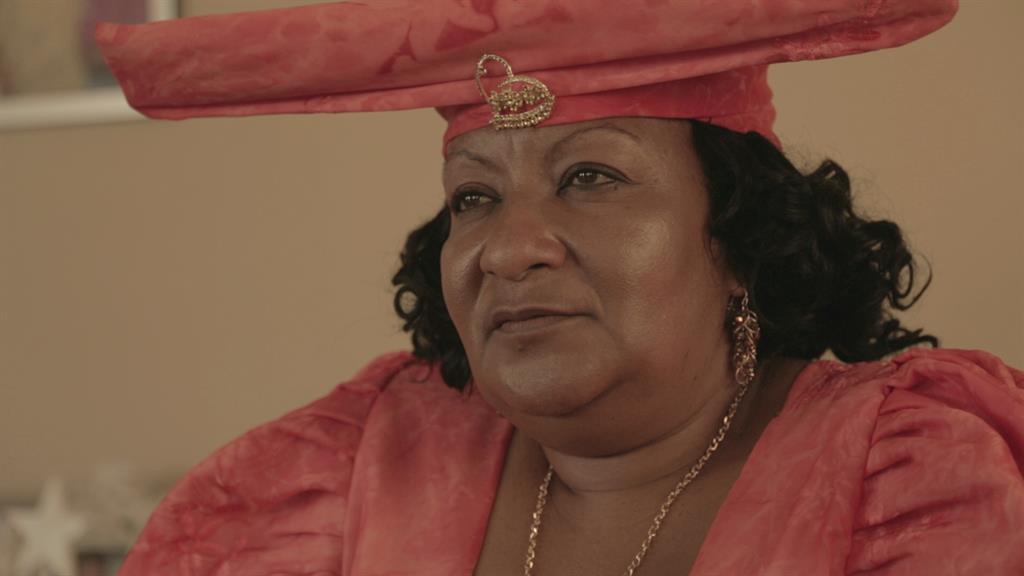Genocide documentary premieres
A documentary chronicling the genocide negotiations will be shown on Al Jazeera tonight.
A documentary directed by South African filmmaker Vincent Moloi, 'Skulls of My People', will premiere on Witness, Al Jazeera's English channel, tonight.
It follows a campaign to pressurise Germany to acknowledge and apologise for the 1904 to 1908 colonial genocide in Namibia.
It chronicles the discussions on the demand for reparations, the return of human remains from Germany, and the issues affected communities have with both the Namibian and German governments.
The negotiations have been criticised for excluding the descendants of the victims who filed a class action lawsuit in New York in January against Germany.
The documentary had its world premiere at the International Documentary Film Festival Amsterdam (IDFA) where it was dubbed “a story of an ordinary grassroots group taking on the mighty and powerful against all odds”.
It gives voice to the anger of Nama and Ovaherero descendants over the systematic massacre, which is exacerbated by the two governments' reactions to the current campaign for restorative justice.
It covers the German parliament's rejection of a 2015 motion to commemorate and apologise for the genocide.
It also deals with the frustration of being left out of direct negotiations by the Namibian government.
“Our government can be there at the conference table as well; we don't deny them their place.
“But we are the people to negotiate on behalf of our people because we know what pain we suffered, what pain we continue to suffer materially, economically, psychologically and otherwise.
“Nobody else,” Ovaherero paramount chief Vekuii Rukoro says in the documentary.
The secretary of the Ovaherero Genocide Foundation 1904 (OGF 1904), Ujiua Muinjangue, discusses her distrust in both governments.
“In our eyes, the German government is the perpetrator. But they are also now the players and the referee as well.
“You don't decide yourself whether you are guilty or not; you also don't decide if I am guilty, what punishment should I get,” she says.
Of the Swapo government, Muinjangue has this to say: “They want the whole world to know that the liberation struggle started in 1966. They don't want other people to get credit; credit should just go to them.
“And now if you recognise 1904, we recognise the Herero people and they don't want that.”
CATHERINE SASMAN
It follows a campaign to pressurise Germany to acknowledge and apologise for the 1904 to 1908 colonial genocide in Namibia.
It chronicles the discussions on the demand for reparations, the return of human remains from Germany, and the issues affected communities have with both the Namibian and German governments.
The negotiations have been criticised for excluding the descendants of the victims who filed a class action lawsuit in New York in January against Germany.
The documentary had its world premiere at the International Documentary Film Festival Amsterdam (IDFA) where it was dubbed “a story of an ordinary grassroots group taking on the mighty and powerful against all odds”.
It gives voice to the anger of Nama and Ovaherero descendants over the systematic massacre, which is exacerbated by the two governments' reactions to the current campaign for restorative justice.
It covers the German parliament's rejection of a 2015 motion to commemorate and apologise for the genocide.
It also deals with the frustration of being left out of direct negotiations by the Namibian government.
“Our government can be there at the conference table as well; we don't deny them their place.
“But we are the people to negotiate on behalf of our people because we know what pain we suffered, what pain we continue to suffer materially, economically, psychologically and otherwise.
“Nobody else,” Ovaherero paramount chief Vekuii Rukoro says in the documentary.
The secretary of the Ovaherero Genocide Foundation 1904 (OGF 1904), Ujiua Muinjangue, discusses her distrust in both governments.
“In our eyes, the German government is the perpetrator. But they are also now the players and the referee as well.
“You don't decide yourself whether you are guilty or not; you also don't decide if I am guilty, what punishment should I get,” she says.
Of the Swapo government, Muinjangue has this to say: “They want the whole world to know that the liberation struggle started in 1966. They don't want other people to get credit; credit should just go to them.
“And now if you recognise 1904, we recognise the Herero people and they don't want that.”
CATHERINE SASMAN





Comments
Namibian Sun
No comments have been left on this article